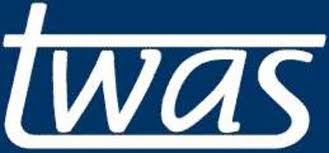TWAS is offering fellowship for young scientists from developing countries (other than Pakistan). These fellowships are available for applicants who wish to pursue postdoctoral research in physical sciences in departments and laboratories of the National Centre for Physics (NCP).
TWAS’s mission is to recognise, support and promote excellence in scientific research in the developing world. Applicants must provide evidence of proficiency in English if the medium of education was not English.
-
Award
-
Application Process
-
Clarity of Information
Summary
Best offer for the student to undertake postdoctoral studies.
User Review
( votes)TWAS, the World Academy of Sciences for the advancement of science in developing countries – is an autonomous international organisation founded in Triste, Italy. TWAS represents, support and encourage the pursuit excellence in science in developing countries.
Application Deadline: 30 June 2023
Brief Description
- Course Level: Research postgraduate (PhD) and postdoctoral level.
- Study Subject: Fellowships are awarded in the field of Astronomy, Space and Earth Sciences and Physics.
- Scholarship Award: NCP will provide a monthly stipend which should be used to cover living costs such as food, accommodation and health insurance. The monthly stipend will not be convertible into foreign currency.
- Number of Scholarships: Not known
- Nationality: Developing countries (other than Pakistan)
- Scholarship can be taken in Pakistan
Eligibility
- Eligible Countries: Citizens of developing countries (other than Pakistan) can apply for this fellowship programme. List of Countries: Afghanistan, Algeria, Angola, Antigua and Barbuda, Argentina, Armenia, Azerbaijan,Bahamas, Bahrain, Bangladesh, Barbados, Belarus, Belize, Benin, Bhutan, Bolivia, Bosnia and Herzegovina, Botswana, Brazil, Brunei, Bulgaria, Burkina Faso, Burma, Burundi, Cambodia, Cameroon, Cape Verde, Central African, Republic Chad, Chile, People’s Republic of China, Colombia, Comoros, Democratic Republic of the Congo, Republic of the Congo, Costa Rica, Côte d’Ivoire, Croatia, Djibouti, Dominica, Dominican Republic, Ecuador, Egypt, El Salvador, Equatorial Guinea, Eritrea, Ethiopia, Fiji, Gabon, The Gambia, Georgia, Ghana, Grenada,Guatemala,Guinea, Guinea-Bissau, Guyana, Haiti, Honduras, Hungary, Indonesia, India, Iran, Iraq, Jamaica, Jordan, Kazakhstan, Kenya, Kiribati, Kuwait, Kyrgyzstan, Laos, Latvia, Lebanon, Lesotho, Liberia, Libya, Lithuania, Macedonia, Madagascar, Malawi, Malaysia, Maldives, Mali, Marshall Islands, Mauritania, Mauritius, Mexico, Federated States of Micronesia, Moldova, Mongolia, Montenegro, Morocco, Mozambique, Namibia, Nauru, Nepal, Nicaragua, Niger, Nigeria, Oman, Palau, Panama, Papua New Guinea, Paraguay, Peru, Philippines, Poland, Qatar, Romania, Russia, Rwanda, Saudi Arabia, Samoa, São Tomé and Príncipe, Senegal, Serbia, Seychelles, Sierra Leone, Solomon Islands, South Africa, Somalia, Sri Lanka, Saint Kitts and Nevis, Saint Lucia, Saint- Vincent and the Grenadines, South Sudan, Sudan, Suriname, Swaziland, Syria, Tajikistan, Tanzania, Thailand, Timor-Leste, Togo, Tonga, Trinidad and Tobago, Tunisia, Turkey, Turkmenistan, Tuvalu, Uganda, Ukraine, United Arab Emirates, Uruguay, Uzbekistan, Vanuatu, Venezuela, Vietnam, Yemen, Zambia and Zimbabwe
- Entrance Requirements: Applicants for these fellowships must meet the following criteria:
- be permanent residents in a developing country (other than Pakistan);
- must not hold any visa for temporary or permanent residency in Pakistan or any developed country;
- hold a PhD degree in a field of natural sciences;
- apply for the fellowship within five years of having obtained a PhD degree in a field of the natural sciences;
- be regularly employed in a developing country (other than Pakistan) and hold a research assignment there;
- provide a certificate of good health from a qualified medical doctor;
- provide an official Acceptance Letter from NCP (see sample Acceptance Letter on page 6). Requests for acceptance must be sent to Director Collaboration & Academic Activities Department (CAAD) who will facilitate assignment of a host supervisor. In contacting Director, CAAD applicants must accompany their request for an Acceptance Letter with copy of their CV and a research proposal outline;
- provide evidence of proficiency in English, if the medium of education was not English;
- provide evidence that s/he will return to her/his home country on completion of the fellowship;
- not take up other assignments during the period of her/his fellowship;
- be financially responsible for any accompanying family members.
- English Language Requirements: Applicants must provide evidence of proficiency in English if the medium of education was not English.
Scholarships for Developing Countries
Application Procedure:
How to Apply:
- Applicants must submit an Acceptance Letter from NCP when applying, or by the deadline at the latest. Without preliminary acceptance the application will not be considered for selection.
- Reference letters must be on letter-headed paper, SIGNED and sent as attachments via e-mail to TWAS and NCP. The subject line must contain NCP/PDoc and the candidate’s surname. Alternatively, letters should be sent in sealed envelopes by post. N.B. Only signed reference letters can be accepted. The letters can be submitted either by the referee or by the applicant directly.
- Applicants to the TWAS-NCP Postdoctoral Fellowship Programme should send a copy of their application (by email) to TWAS and to NCP. (For NCP only, both hardcopy by post and soft copy by email).


